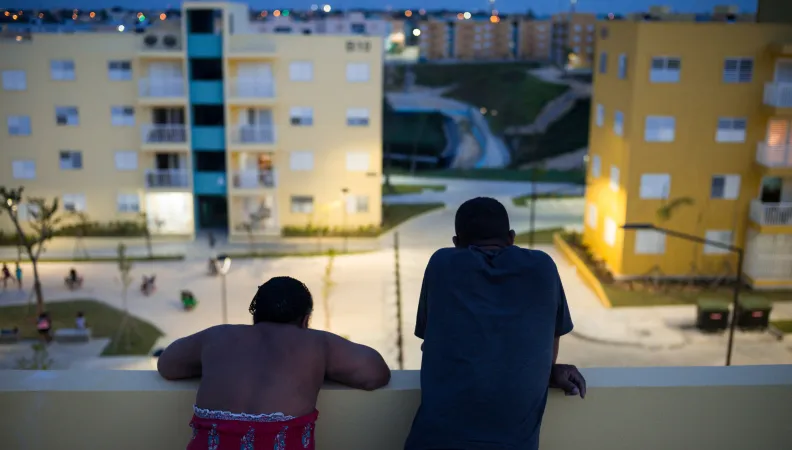Share the page
Demographic and Social Transition

In the coming decades, rapid global population growth will continue, especially in Africa. Yet while some countries have just begun their demographic transition or see a resurgence in birthrates, other countries, reaching the end of their transition, confront rapidly aging populations.
Assisting demographic and social transitions means taking into consideration the variety of population trends and acting to reduce inequalities between countries and within societies, in particular gender inequality. The alleviation of inequalities underpins social acceptance for other transitions by increasing social cohesion, the determining factor for common-pool resource management on a finite planet. To meet it, we are developing tools to “diagnose” inequalities and creating an “inequalities co-benefit” indicator, to better identify disadvantaged populations that may benefit from the projects.
Improving access to basic services
Providing universal access to quality basic social services, from universal health coverage to education, remains a challenge, revisited as digital technology makes new solutions possible.
We work to improve healthcare and health-insurance systems while fighting the grave threat of pandemics.We are also renewing out attention to eradicating malnutrition (SDG 3 – Good Health and Well-Being and SDG 2 – Zero Hunger).
In Africa, AFD Group is helping accelerate demographic transitions by supporting education for girls and a reduction in teen-pregnancy, reduced infant mortality, and access to sexual and reproductive health services.
In countries that face accelerated aging, such as in Asia, we draw on experience gained in the French Overseas Territories together with the expertise of the Caisse des Dépôts (CDC) Group to support public policies aimed at promoting the autonomy of the elderly (transportation, housing, etc.) and designing appropriate retirement systems.
Promoting inclusion and innovation
Harmonious coexistence means giving everyone opportunities for inclusion and innovation. One major component of this is investing in higher education and research.
AFD Group provides support for quality post-secondary education and professional training systems; it also supports labor-market entry and job mobility. Our approach develops the potential of youth and women in order to protect them from violence and help them find and maintain employment.
We also support entrepreneurship, especially among women, and the creation of decent work by promoting financial inclusion and funding small and medium-sized businesses.
Ensuring social cohesion
Finally, demographic and social transitions should strengthen social link and ensure cohesion.
Everywhere we operate, AFD targets the inequalities that weaken social link, in keeping with SDG 10 (reduce inequality within and among countries). We draw on France’s experience in land-use planning and regional networks of services to the people, decentralization, taxation (such as redistribution policies), and social protection.
In order to develop the most effective policies and approaches for reducing economic and social inequalities, we work with the countries themselves to identify the factors that determine these inequalities.
